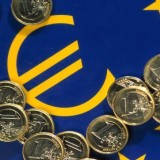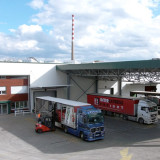
Posted on 16 January 2015.
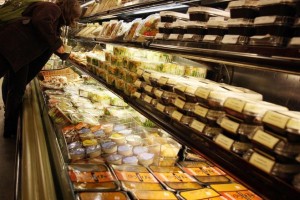 The consumer prices in Germany remained dangerously close to the possibility of falling into stagnation, confirmed the Federal Statistical Office (Destatis) in its final report in December. The news is the latest sign that inflation in the euro area gradually passes in negative territory, which will probably force the European Central Bank (ECB) to take more decisive action. Inflation in Germany slowed to 0.2% YoY, but grew with 0.6% MoM. The level was the lowest since October 2009. The preliminary data presented earlier in the month were slightly more optimistic and showed annual inflation rate of 0.4%.
The consumer prices in Germany remained dangerously close to the possibility of falling into stagnation, confirmed the Federal Statistical Office (Destatis) in its final report in December. The news is the latest sign that inflation in the euro area gradually passes in negative territory, which will probably force the European Central Bank (ECB) to take more decisive action. Inflation in Germany slowed to 0.2% YoY, but grew with 0.6% MoM. The level was the lowest since October 2009. The preliminary data presented earlier in the month were slightly more optimistic and showed annual inflation rate of 0.4%.
Measured on a monthly basis, the German inflation remained unchanged after zero growth in the previous month. The result confirmed the initial assessment. Separate measure specifically designed to enable a comparison between European inflation data - ie. harmonized consumer price index showed inflation of 0.1% on a monthly and annual basis. Analysts predicted levels of 0.2%. The news came amid debate in Europe whether the ECB to resort to incentives, including the purchase of government bonds because of the danger of falling into a deflationary spiral. Germany is the main center of opposition to quantitative easing, but the weakening of the growth of prices in the country can reassure the ECB President Mario Draghi.
Posted in Economy, Finance

Posted on 14 January 2015. Tags: Wells Fargo
 The Wells Fargo quarterly profit rose 1.8% after the bank has achieved a strong growth in lending, which managed to overshadow rising costs. The bank reported net profit of 5.71 billion USD compared with the result of 5.61 billion USD an year earlier. The earnings per share does that indicates the payment of preferred dividends, rose 1.02 USD compared to 1 USD an year earlier. The revenues of Wells Fargo increased by 3.8% to 21.44 billion USD, while analysts expected earnings per share amount at 1.02 USD and revenue of 21.23 billion USD.
The Wells Fargo quarterly profit rose 1.8% after the bank has achieved a strong growth in lending, which managed to overshadow rising costs. The bank reported net profit of 5.71 billion USD compared with the result of 5.61 billion USD an year earlier. The earnings per share does that indicates the payment of preferred dividends, rose 1.02 USD compared to 1 USD an year earlier. The revenues of Wells Fargo increased by 3.8% to 21.44 billion USD, while analysts expected earnings per share amount at 1.02 USD and revenue of 21.23 billion USD.
The costs of the company, however, also reported an increase. Non-interest expenses rose 4.7% from an year earlier to reach 12.65 billion USD. Wells Fargo, led by Chairman and CEO John G. Stumpf was the favorite for the stock market among the major banks in recent years. The position of the largest US bank by market value Wells Fargo has helped the recovery of the US economy, marking 18 consecutive quarters of profit growth.
Lending remained bright beam for Wells Fargo. The total amount of loans grew by 4.9% year on year to 862.55 billion USD. The CFO John Shrewsberry also focus on the strengths of the proceeds from bank loans, adding that revenues from fees have remained stable. According to the report on housing loans reached 44 billion USD compared to 50 billion USD an year earlier and 48 billion USD in the previous quarter. The mortgage loans were for 1.52 billion USD, down with 3.5% from an year earlier.
Fourth US bank by assets, is considered by many analysts as a conservative institution that is not obsessed with expansion of its operations, which make it successful in the era of boom.
Posted in Business, Economy

Posted on 14 January 2015.
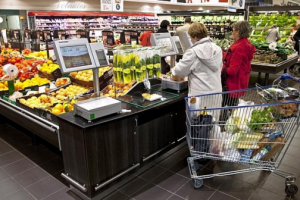 The Greek deflation reached 1.3% in 2014, according to data of the Athens Institute of Statistics Elstat. The consumer prices in Greece continued to fall in December, when recorded the sharp decline of more than a year. This is against a background of weak demand and lower costs which make the number of households for goods and services. In the last month of 2014 deflation in Greece is 0.5% MoM and 2.6% yoy, as for comparison in November the annual inflation was 1.2%.
The Greek deflation reached 1.3% in 2014, according to data of the Athens Institute of Statistics Elstat. The consumer prices in Greece continued to fall in December, when recorded the sharp decline of more than a year. This is against a background of weak demand and lower costs which make the number of households for goods and services. In the last month of 2014 deflation in Greece is 0.5% MoM and 2.6% yoy, as for comparison in November the annual inflation was 1.2%.
The December decline was mainly due to the decrease in property prices by 7.1% for the year and the decreased transport of 4.2%. The only product category in which prices rise is alcohol, cigarettes and tobacco products, where growth was within 3%. In December, the harmonized consumer price index, which is prepared by the Eurostat methodology, is also negative - minus 2.5% deflation of 1.2% in November.
In Greece deflation reigns already 22 months after redundant salaries and pensions, and deep recession, increased pressure on prices. The deflation in the Mediterranean country was highest in November 2013, when it reached 2.9% yoy.
Posted in Economy, Finance

Posted on 14 January 2015.
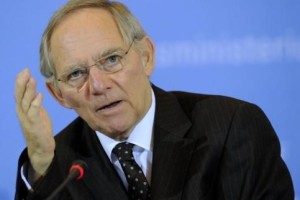 The German government succeeded to balance 2014 budget for the first time in 45 years. The Finance Minister Wolfgang Schaeuble promised to achieve this goal in 2015 and a balanced budget to become the norm for Germany, but has failed to meet its target ahead of schedule. Initially, the German government had predicted a small budget deficit of 6.5 billion EUR for 2014, but thanks to higher tax revenues and lower interest rates in debt repayments Berlin was able to finish the year without new loans. The Finance Minister Wolfgang Schaeuble pursue this objective for 15 years and managed to reach as Franz Josef Strauss, who achieved this result for the last time in 1969. Because of the good tax revenue and strict budget management Schaeuble has achieved balance without cutting subsidies or reduces costs.
The German government succeeded to balance 2014 budget for the first time in 45 years. The Finance Minister Wolfgang Schaeuble promised to achieve this goal in 2015 and a balanced budget to become the norm for Germany, but has failed to meet its target ahead of schedule. Initially, the German government had predicted a small budget deficit of 6.5 billion EUR for 2014, but thanks to higher tax revenues and lower interest rates in debt repayments Berlin was able to finish the year without new loans. The Finance Minister Wolfgang Schaeuble pursue this objective for 15 years and managed to reach as Franz Josef Strauss, who achieved this result for the last time in 1969. Because of the good tax revenue and strict budget management Schaeuble has achieved balance without cutting subsidies or reduces costs.
The opposition parties and many economists believe that the balance does not really help the economy, which needs investments for growth. In terms of total debt Germany is still above definitions of the Maastricht conditions for the Eurozone ceiling of 60% of GDP. At the end of 2013 the government debt was 2.15 trillion EUR, which is equal to 78% of GDP. Schaeuble expects the debt to be reduced to below 60% by 2024.
Posted in Economy, Finance

Posted on 13 January 2015.
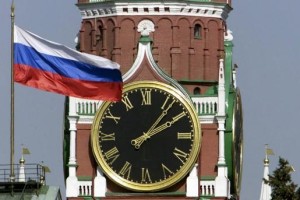 The growth in consumer prices in Russia in December 2014 was at 2.6%, the Federal Statistical Office reported on Monday. Thus the institution confirmed its preliminary assessment that inflation for the year was 11.4%. The December’s inflation proved to be the highest in the last 10 years. The last time such a significant price increase was registered in January 2005/ In 2013 inflation in Russia amounted to 6.5% in 2012 was 6.6%, and in 2011 - 6.1%. The last time the Russian authorities reported double-digit annual inflation was in 2008 (13.3%).
The growth in consumer prices in Russia in December 2014 was at 2.6%, the Federal Statistical Office reported on Monday. Thus the institution confirmed its preliminary assessment that inflation for the year was 11.4%. The December’s inflation proved to be the highest in the last 10 years. The last time such a significant price increase was registered in January 2005/ In 2013 inflation in Russia amounted to 6.5% in 2012 was 6.6%, and in 2011 - 6.1%. The last time the Russian authorities reported double-digit annual inflation was in 2008 (13.3%).
Although it was significant inflation in December was slightly below analysts’ expectations. The experts had forecast level of 2.8%. Final data for 2014 exceeded more than twice the target inflation, which at the beginning of the year to put the central bank. The institution was set at a level of 5%.
The explosive growth of consumer prices began in mid-December after the devaluation of the ruble. As a result, during the week from 16 to 22 December inflation accelerated to 0.9%, which is the biggest weekly increase since the beginning of the reporting of weekly data in 2008.
Posted in Economy, Finance

Posted on 07 January 2015.
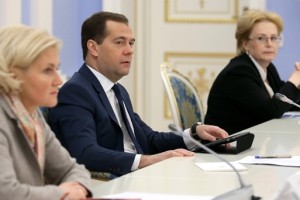 Russia will produce more medicines, says a meeting between Russian Prime Minister Dmitry Medvedev with the Minister of Health Veronika Skvortsova. Transcript of the meeting is posted on the website of the Russian government. From the conversation it became clear that in the medication list to attend Russia 608 medicines that were identified as vital. 413 of them are produced in Russia, but the number ambitions are growing. The theme of medicines is current when the low value of the Russian ruble expensive imported products, such as some of the important medicinal products on the Russian market.
Russia will produce more medicines, says a meeting between Russian Prime Minister Dmitry Medvedev with the Minister of Health Veronika Skvortsova. Transcript of the meeting is posted on the website of the Russian government. From the conversation it became clear that in the medication list to attend Russia 608 medicines that were identified as vital. 413 of them are produced in Russia, but the number ambitions are growing. The theme of medicines is current when the low value of the Russian ruble expensive imported products, such as some of the important medicinal products on the Russian market.
Last year, new medicine substances produced in Russia were 12, including influenza medicine, medicines for the treatment of hepatitis and others commented the Russian health minister. It states that in 2015 it is planned the creation of at least 10 new substances for the treatment of cancer and other major diseases. Russia is an important market for Bulgarian pharmaceutical companies. According to the latest data from the Ministry of Economy in 2013. The medicines constitute 30% of Bulgaria’s total exports to Russia.
During his meeting with Medvedev assures Skvortsova more that pharmacies in the country are well stocked and have stocks, so the first half of 2015 is provided with medicines. “We have stocks”, said in turn, Russian Prime Minister, but adds that “medicines can be bought over ten years”. It recommends measures to maintain the rhythm of the stock of medicines.
Despite the lower value of the Russian currency will not reflect to increase the price of medicines, said a little later in a statement the Ministry of Health. Russian news agency Tass states that in 2014 the vital medicines have risen by an average of 2.3%.
Posted in Economy, Finance

Posted on 06 January 2015. Tags: Germany
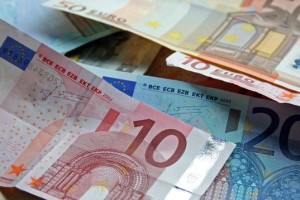 The German inflation delayed to 0.2% in December, as the price growth failed to accelerate and remained persistently weak according to the latest data of the Federal Statistical Office. Germany suffers from low and falling inflation, which puts additional pressure on the European Central Bank (ECB) to take further action to end the deflationary spiral in which it is about to fall a currency union. The level of inflation slowed to 0.2% compared to the same period last year compared to the growth of consumer prices by 0.6% in November. The level was the lowest since October 2009. The market consensus was set at the level of 0.4%.
The German inflation delayed to 0.2% in December, as the price growth failed to accelerate and remained persistently weak according to the latest data of the Federal Statistical Office. Germany suffers from low and falling inflation, which puts additional pressure on the European Central Bank (ECB) to take further action to end the deflationary spiral in which it is about to fall a currency union. The level of inflation slowed to 0.2% compared to the same period last year compared to the growth of consumer prices by 0.6% in November. The level was the lowest since October 2009. The market consensus was set at the level of 0.4%.
Measured on a monthly basis, inflation remained unchanged after zero growth in the previous month. The forecasts were for a rise of 0.2%. The separate measure, designed specifically to enable a comparison between European inflation data - the so-called harmonized consumer price index showed inflation of 0.1% on a monthly basis in December. The analysts expected level of 0.2%.
In view of the available components fall in core inflation was due not only to lower energy prices, but also some timid secondary effects on consumer goods. This may be due to discounts in shopping for Christmas, according to many of the experts.
The European central bankers continue to be concerned about low inflation in Germany and the euro area as a whole. ECB target level is close to but less than 2%, which should ensure long-term price stability. Today’s slowdown in inflation in Germany will not make things easier. In fact, chances eurozone inflation to fall in negative territory in December are high. This will happen for the first time since October 2009.
Posted in Economy, Finance

Posted on 06 January 2015. Tags: Turkey
 Central Bank of Turkey raised banks short-term reserves in foreign currency in an attempt to strengthen financial stability after the sale of emerging markets hold the pound near a record low, and local companies are facing growing international debt obligations. The Banks in Turkey must now hold with the central bank 18% (previously 13%) of foreign currency deposits with maturity of one year and 13% (previously 11%) of those with a maturity of two years. The changes will come into force on 13th February 2015, according to the central bank measure would raise its foreign reserves by about 3.2 billion USD after the Turkish lenders meet the new requirements.
Central Bank of Turkey raised banks short-term reserves in foreign currency in an attempt to strengthen financial stability after the sale of emerging markets hold the pound near a record low, and local companies are facing growing international debt obligations. The Banks in Turkey must now hold with the central bank 18% (previously 13%) of foreign currency deposits with maturity of one year and 13% (previously 11%) of those with a maturity of two years. The changes will come into force on 13th February 2015, according to the central bank measure would raise its foreign reserves by about 3.2 billion USD after the Turkish lenders meet the new requirements.
On the other hand, the central bank cut reserve requirements on deposits in foreign currency with a maturity of three years from 11% to 8%, as part of efforts to promote long-term savings.
Turkish lira fell against the USD in December, along with the currencies of other emerging market currencies. The Turkish currency lost 5% last month to 2,345 per USD amid expectations that the US Federal Reserve will begin to raise interest rates this year. In foreign debt of 397 billion USD at the end of the third quarter 2014, the Turkish Central Bank was forced to take a step to counter currency withdrawals from banks. The Turkish corporations hold about 60% of the debt, and most of the rest belong to local banks.
Turkish banks could exchange USD for TRY to cover up to 60% of its reserve requirement in local currency. Under the new guidelines, to use half of their quota exchange, banks will have to deposit 1.20 USD (previously 1.40 USD) for each Turkish lira. The central bank also introduced more reserve tranche and said that the decision will free up around 2.4 billion USD. The move aims to help banks and companies that occupy abroad at a record rate.
Posted in Economy, Finance

Posted on 05 January 2015.
 Venezuela confirmed fallen into recession. Inflation does remain the highest in the Americas, prompting the socialist government of President Nicolas Maduro accused the political enemies of gloomy data. The central bank said gross domestic product has shrunk in each of the first three quarters, respectively 4.8%, 4.9% and 2.3%. The annual inflation reached 63.6% in November.
Venezuela confirmed fallen into recession. Inflation does remain the highest in the Americas, prompting the socialist government of President Nicolas Maduro accused the political enemies of gloomy data. The central bank said gross domestic product has shrunk in each of the first three quarters, respectively 4.8%, 4.9% and 2.3%. The annual inflation reached 63.6% in November.
The payment balance of Venezuela noted an excess of 6.8 billion USD at the end of the third quarter. The current account surplus was 899 million USD, and the capital account was in a deficit of 568 million USD. Venezuelan exports, 90% of which is oil exports, decreased by 14.2% to 19 billion USD in the third quarter, while the imports has slipped slightly by 1.4% to 12.2 billion USD.
Despite the negative data Nicolas Maduro promised to continue with social policies, known since the times of his predecessor, Hugo Chavez. According to central bank data extreme poverty fell to 5.4% of households in 2014 - half the level before Chavez came to power, while unemployment has fallen to 5.9%.
“Despite the protests and the economic war in 2014. Venezuela’s economic indicators have improved”, Maduro said in a press conference. “This economic war, the decline in oil prices is a great opportunity for economic change. 2015 is the year of opportunity for major change in the economic model”, said the president.
Posted in Economy, Finance

Posted on 05 January 2015.
 The activity in the industrial sector of the Eurozone grew at a slower pace than the first evaluation in December, keeping pressure on the European Central Bank to step up its incentives. The index (PMI) of the Institute’s monthly survey among managers Markit supply of about 3,000 manufacturers rose to 50.6 from 50.1 points in November - lower than the estimate of 50.8. The values above 50 index showed expansion, while below that signal a contraction. The General weakness of PMI in the euro area justifies more monetary stimulus by the ECB, although in Ireland and Spain may be seen indications that existing policies are already bearing fruit and that perhaps more patience is required before any new measures.
The activity in the industrial sector of the Eurozone grew at a slower pace than the first evaluation in December, keeping pressure on the European Central Bank to step up its incentives. The index (PMI) of the Institute’s monthly survey among managers Markit supply of about 3,000 manufacturers rose to 50.6 from 50.1 points in November - lower than the estimate of 50.8. The values above 50 index showed expansion, while below that signal a contraction. The General weakness of PMI in the euro area justifies more monetary stimulus by the ECB, although in Ireland and Spain may be seen indications that existing policies are already bearing fruit and that perhaps more patience is required before any new measures.
The PMI for the three months of the fourth quarter e at the lowest level since the third quarter of 2013. And while in Germany the index rose slightly, the activity declined again in France and Italy. Italian PMI is the lowest of 19 months. Ireland continues to outpace the rest of the euro area, while industrial activity in Spain and the Netherlands also expanded, albeit at a slower pace than in recent months.
The study provides reassurance grain for politicians, as new orders increased for the first time in four months. This is mainly due to export contracts, which is an indication that the weakening of the euro may finally helped some businesses. But there are new signs that the euro area will soon come out of the period of very low inflation, as producers cut back its sales prices after their costs fell by the sharpest pace in eight months, reflecting lower oil prices.
Posted in Economy, Finance
 The consumer prices in Germany remained dangerously close to the possibility of falling into stagnation, confirmed the Federal Statistical Office (Destatis) in its final report in December. The news is the latest sign that inflation in the euro area gradually passes in negative territory, which will probably force the European Central Bank (ECB) to take more decisive action. Inflation in Germany slowed to 0.2% YoY, but grew with 0.6% MoM. The level was the lowest since October 2009. The preliminary data presented earlier in the month were slightly more optimistic and showed annual inflation rate of 0.4%.
The consumer prices in Germany remained dangerously close to the possibility of falling into stagnation, confirmed the Federal Statistical Office (Destatis) in its final report in December. The news is the latest sign that inflation in the euro area gradually passes in negative territory, which will probably force the European Central Bank (ECB) to take more decisive action. Inflation in Germany slowed to 0.2% YoY, but grew with 0.6% MoM. The level was the lowest since October 2009. The preliminary data presented earlier in the month were slightly more optimistic and showed annual inflation rate of 0.4%.



















